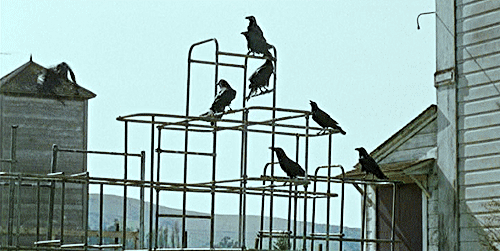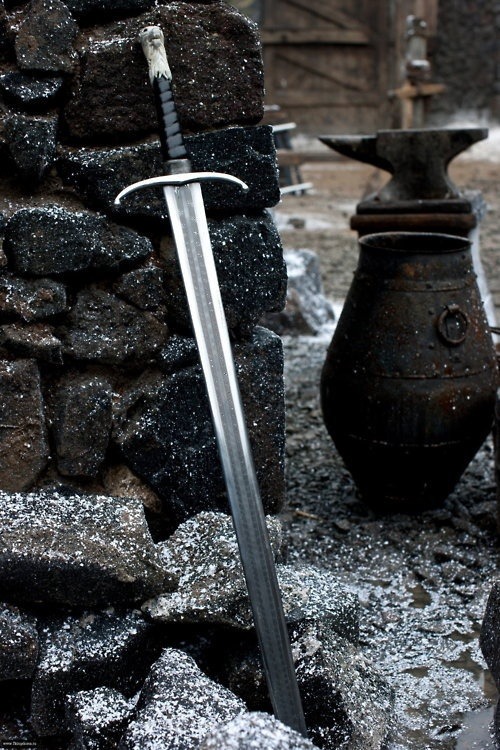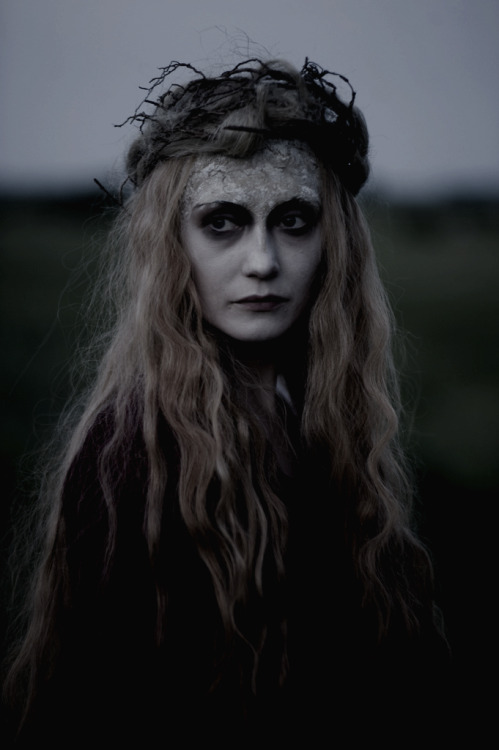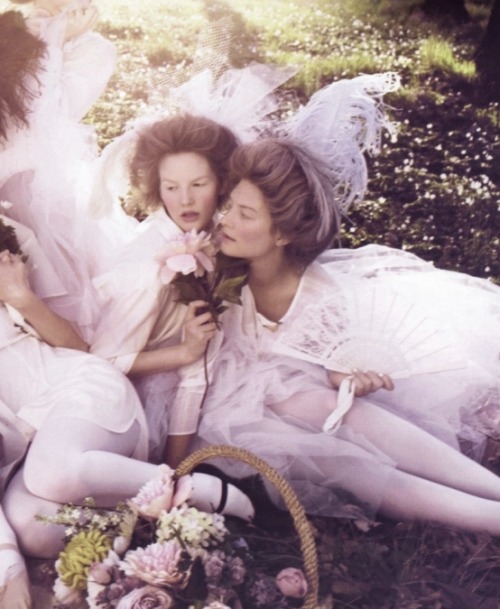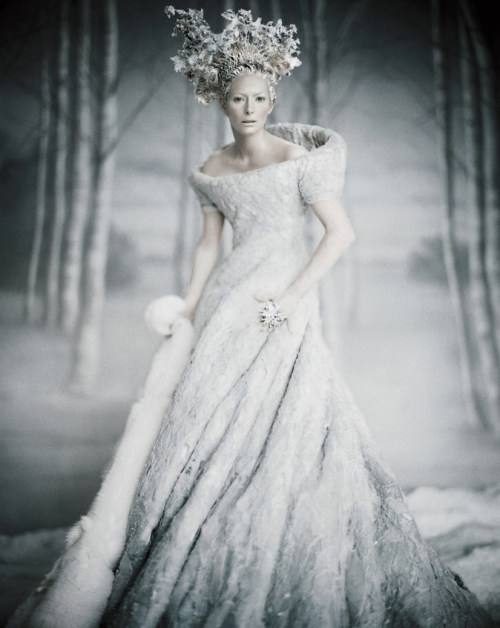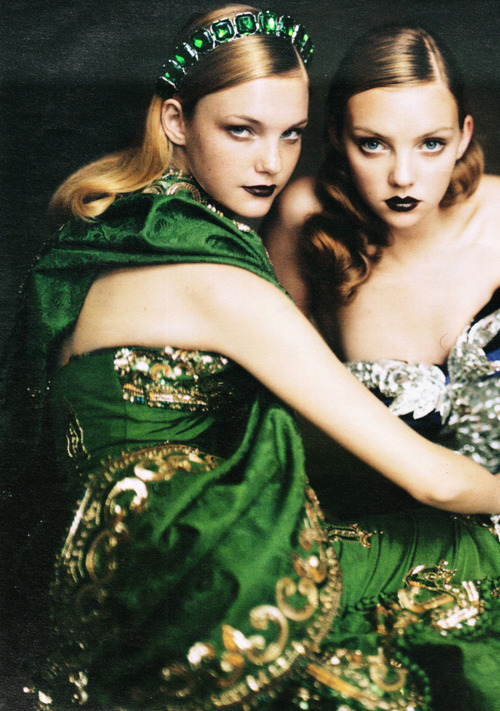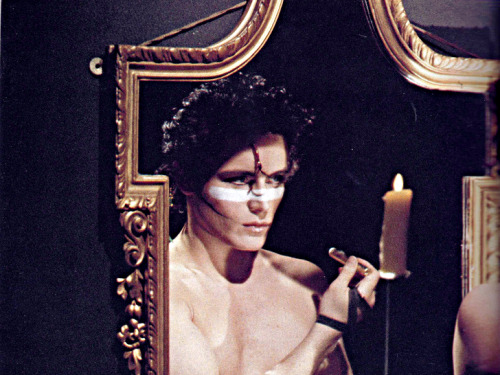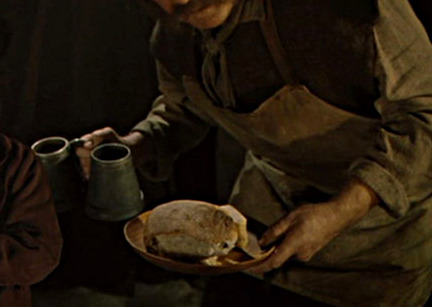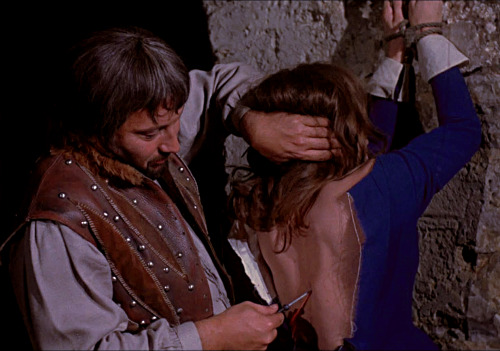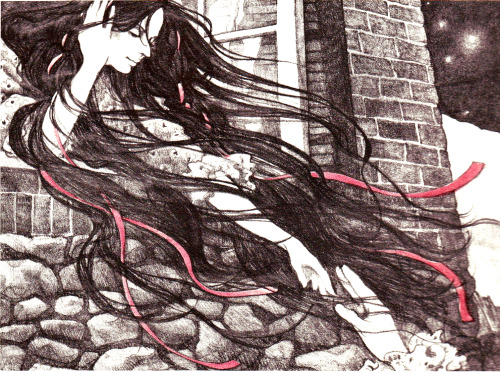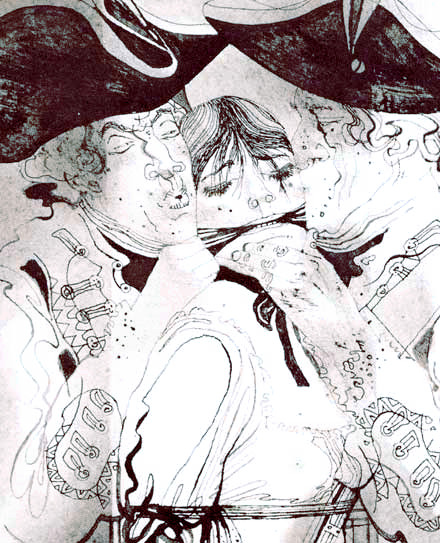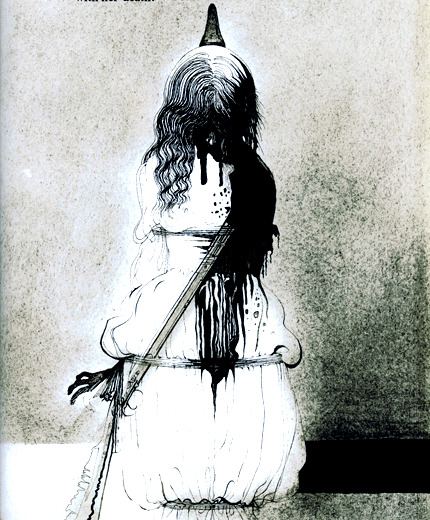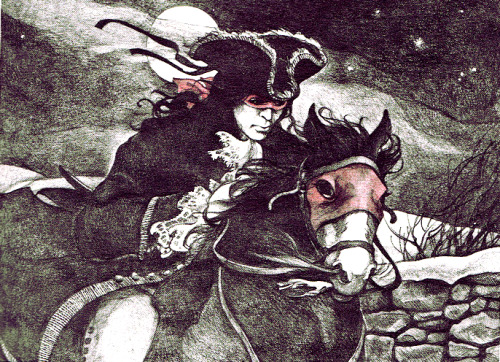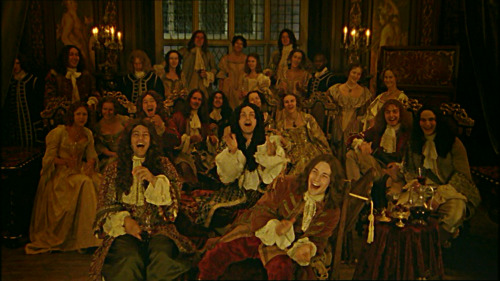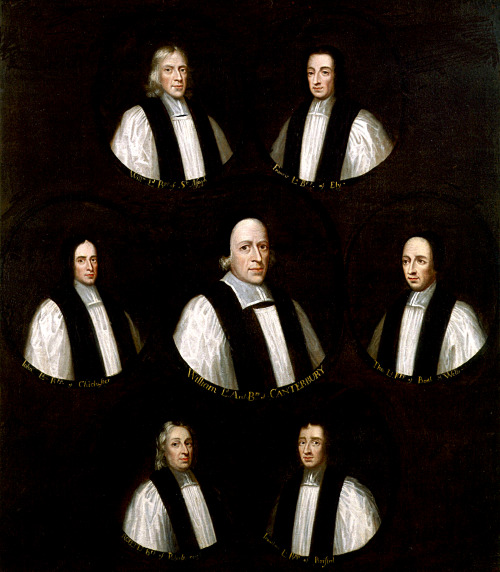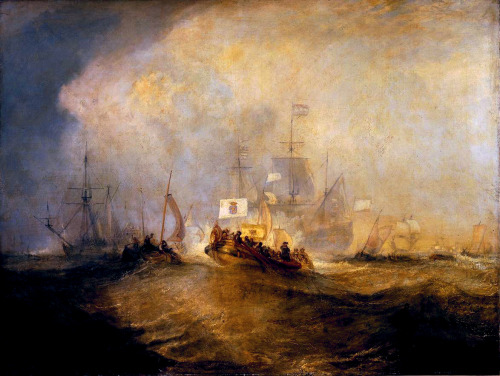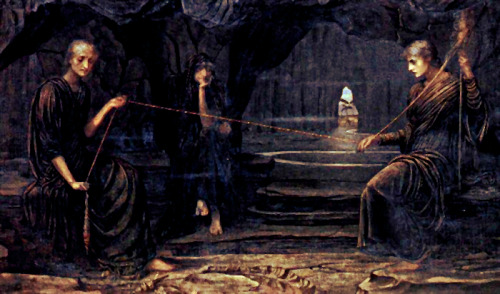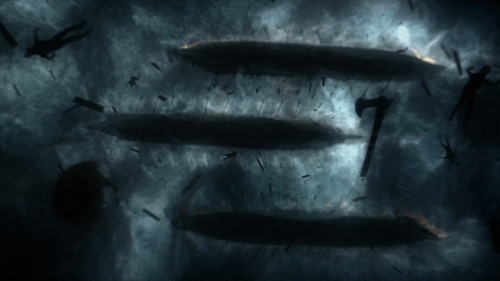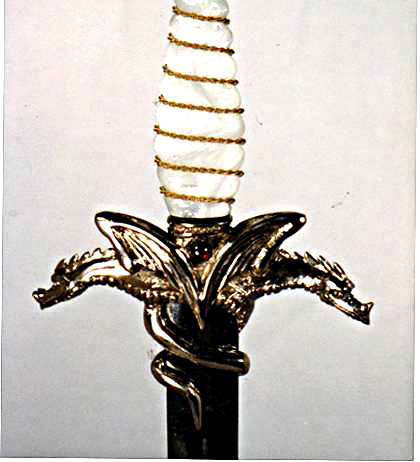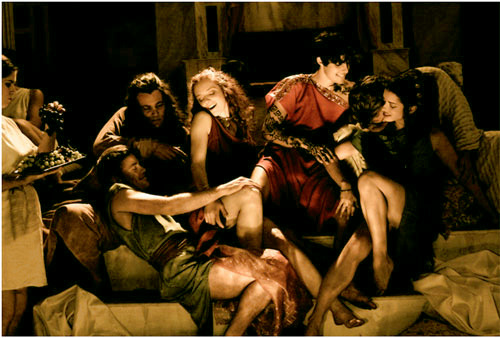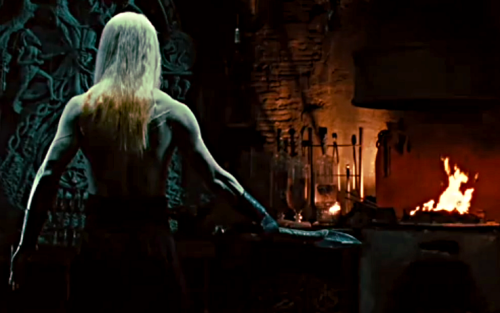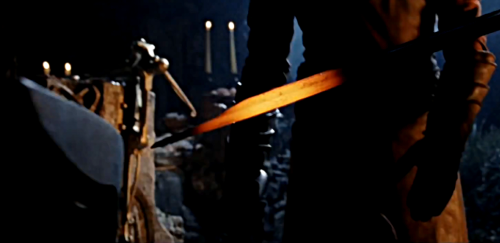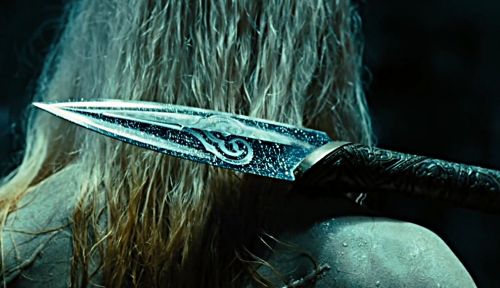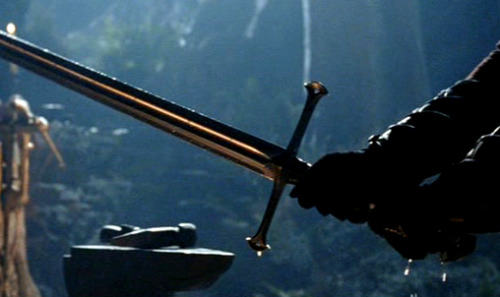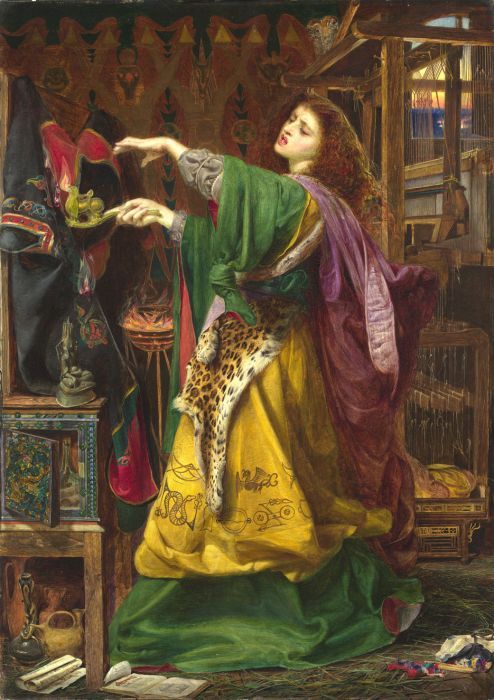#hp headcanon
One for sorrow, two for mirth,
Three for a wedding, four for a birth,
Five for silver, six for gold,
Seven for a secret not to be told.
Eight for heaven, nine for hell,
And ten for the devil’s own sel’.- Augurer’s traditional rhyme
In the beginning there is only one man with dreams of immortality. Lord Voldemort he calls himself, and bids his friends call him by this new name. They say the name solemnly.
And when he turns away, they laugh up their sleeves.
Then one of them has an idea. We are respectable young men, he says, fine upstanding citizens of this land.
Why do we not use this unknown with pretensions to greatness to meet our own ends?
The four consider his proposition. One joins for wealth. One joins for power. One joins for the rest. The last joins because it is the first who proposed it.
Five for silver and a bright future.
Then comes six, a family friend of the first, from a different land where dark and light magic are all the same. He will bring them magic and magicians from this land, where knowledge that is secret here is traded openly and loudly debated in the conference rooms of their Ministry.
Seven is a sad crow indeed, a young man in ragged clothes, snarling and raging at the world - met with a tragic accident not a few years ago and in a moment went from a bright young thing to nobody in particular, outcast and tramp.
Seven brings eight with him. Snarling and raging, ready to do the bidding of the others as long as they have blood, blood and more blood.
Nine joins out of fear, to save his children from the coming darkness.
Ten joins because if he is to be a butcher, then he would make such a butchery that it would go down in song and story.
Ten crows for the devil himself.
While The One, their noble leader is gone - finding magic that the world has long since forgotten, marked only in old stories crones tell children to scare them into behaving, for himself - they gather in silence and slowly build. An empire, a fully fledged war machine to set in motion when The One returns.
And as they gather in silence, wizarding Britain continues, oblivious, blissfully happy, not knowing that in a few years their world will be plunged into a war the like of which they have never seen.
For now, all is well, as the crows simply gather and watch.
Post link
Blood-binding was common a millenium ago. Until Terrence Nott, a pureblood renowned for his fighting prowess and sadism, forced a hostage and enslaved goblin to forge him a sword for his flamboyant duels in court. Hatred and cruelty poured into the sword from the goblin’s magic, his anger at being kept like livestock holding tight to the blade. Once it was cooled not in water, but hot blood, it refused to bend to the wizard’s will.
No but it had a taste for his blood instead. Every duel, every battle, the blade would twist to harm its own, drawing slight cuts and scars. Terrence didn’t notice the wounds until it was too late. Until after the blade had had its fill and was left sated in cold fingers.
And that, that is why, young wix, we do not harden our swords in our own blood. Because sometimes it draws no loyalty. Only hunger.
(submitted by kittenboudicca)
Post link
On the origins of magic: how the wands came to be. (4/?)
From: Postcolonial resistance in the mythologies of the magical peoples of the South Asian subcontinent ed. Sunil P. Patil (1991).
Old magic. Old magic old magic old magic.
How could people forget?
How could people forget the magic that had helped raise the great stones, that had marked the stars that pyramids pointed to, that had sunk ancient cities and raised rivers from deserts?
How could they forget?
All too easily, the answer rang back, all too easily. They had forgotten how to live, breathe and drink magic. Had forgotten how the men of yore had lived without wands; how without those twigs the magic was channeled through movement and sway and song and sacrifice. How without those twigs the only barrier to the magic you could make was yourself, was your own mind, your own sacrifice. How without those twigs you could do anything when you had enough strength.
Magic was a muscle, the elders said. Practice with it and it shall grow, just as by lifting rocks and timber each day your muscles shall grow. But take one of those sticks, those little twigs and you are using a lever to do that work for you, you are letting yourself be weak when you could be so so so strong.
The young ones ignored them, pointed at them laughed at these elders stuck in their old ways with dreams of a great and ancient past but naught to show for those dreams, and argued that now they were old how could they sway and sing and sacrifice? Was it not better to do less for more? To conserve, waiting for a greater task, The Great Task? Why offer themselves up mind, body and soul to magic when in a moment, with a mere flick of a wrist, with a wand they could do the same thing just as well? And these elders could lament wands all they liked, but they had nothing to show for all their boasts of glory, could not with such precision, with such finesse accomplish the things these children could.
The elders’ faces were impassive.
The elders’ faces betrayed nothing.
So it went, for years and years, the children slowly outnumbering the elders, growing proud and mighty in their strength until the elders worried. Worried that in their pride the children would grow reckless, would forget that magic was no toy but a powerful force, one to be reckoned with - one that would demand its pay.
A great council they summoned, drawing magical folk from every corner of the uncivilized world and told them of their fears - of how they feared the children had forgotten the old magics of the world, had forgotten what it meant to channel power and force, what it meant to be responsible.
They fought. Father against son. Mother against daughter.
And late that night elders from every corner of the uncivilized corners of the world met in an old forest, untouched by time and human hands, still throbbing with the ancient magic of the world, deep and dark. There they breathed their old and ancient magic for the very last time, letting it seep through their veins, rich and heady and intoxicating. Then with calls foreign to all, they rose and bound their children.
You want wands? they asked the magic they worshipped and worked with, You want levers and magic getting weaker?
Then so be it.
They bound the magic and their children all at once, forever cursing those who took in hand the twigs they called wands, weapons, to be doomed to a life torn away from the old magics of the world. So it was that when a child used a wand, working wandless came to be a burden, a path fraught with great difficulty that few except the most dedicated would ever tread.
It is their punishment. The consequence of their folly.
When you see them, with their wands, remember the old magic, the magic that you breathe, drink and live. It is this magic in your veins, the magic of the civilized lands of the world. Dusty, old with time. Exercise it, children, use it, concentrate, feel it, let it flow through you, lest it be taken from you and lost forever.
I am disappointed, of course, that father never got to see this book. I think he would have quite enjoyed it. Would have found plenty of good use for it in his research.
Naturally, as you might imagine, the book is popular only among a few select academic circles in the wizarding world. Wands as punishment? Sacrilege! Though I suppose one ought to be thankful it did not receive the Myths of Magical Europe treatment. A.R.
(Submitted by essayofthoughts, with a few minor edits on my part.)
Post link
From the top, left to right: Pleione Carrow and Flora Greengrass, on their wedding day, March 16th, 1950. Portrait of Flora Greengrass, 1975. Portrait of Pleione Carrow, 1979. Pleione Carrow and Flora Greengrass at a soiree, 1943.
No one was surprised when Flora Greengrass and Pleione Carrow chose to have their weddings on the same day, in the same venue.
Even in school at Hogwarts, the two could always be found with their heads together, sharing in some secret the rest of the world was not privy to. Upon graduating in 1945, they both took up jobs in the Department of International Magical Cooperation, working as secretaries to the department head and his deputy.
The rumours first started in the summer of 1948, when Flora Greengrass scandalized the wizarding world by turning down an eminently respectable offer of marriage from Titus Fawley. Titus Fawley was considered an excellent catch by all the matchmaking pureblood mamas, and Flora’s turning him down shocked even the most liberal-minded of them. Very soon the ballrooms of the wizarding elite were afire with whispers of an illicit relationship between Flora and Pleione and formidable dowagers tut-tutted openly at the Carrows and Greengrasses for having let their daughters run so wild. The source of the rumour is still disputed, but most accept privately that it was Titus Fawley, jealous of the closeness of the two, who first spread the rumour that Pleione and Flora were not merely friends, but were lovers.
Naturally, their parents could not be seen to be doing nothing about this breach of morals and respectability and began pressuring their daughters to find husbands for themselves.
Two years passed before the two were approached by Henry Mulciber, a fellow colleague at the Ministry of Magic (quite respectably betrothed to Dahlia Parkinson), who offered them a means out of their predicament. He had two friends, he said - naming no names - who were similarly situated and would understand the delicacies of their circumstances - unlike most other pureblood men their age. They would, he was sure, be able to reach an agreement that would be mutually satisfactory to both parties and keep their parents’ noses out of their private sex lives.
Intrigued, the girls agreed to meet with his two friends and were pleasantly surprised (and impressed) when both the gentlemen in question amicably discussed the terms of their marriage and did not impose upon them the behavioural strictures most pureblood men of the time would have imposed upon them.
Of course, both Pleione and Flora knew of the rumours about those two. Practically the entire wizarding world knew about those two.
In the spring of 1950, Pleione Carrow and Flora Greengrass married Antinous Lestrange and Charles Nott, under the strict proviso that both sides be allowed to continue their non-marital relationships with each other.
Thus it was that the Lestrange boys came to have not one father and one mother, but two fathers and two mothers. Perhaps it was the best for them, for their natural parents were aloof in nature while Charles and Flora were doting and fond adoptive parents, showering the boys with affection where their mother coolly reprimanded them for being rowdy and their father coldly demanded to know if this was how Lestranges behaved.
Yet all the affection in the world did not keep them from following in their fathers’ footsteps and becoming Death Eaters.
[Picture sources: ‘Let them Eat Cake’ by Jimmy Backius for Elle Sweden, August 2008, Tilda Swinton by Paolo Roversi for Vogue US December 2005,Hedvig Palm wearing Valentino Spring/Summer 2012 by Julia Hetta for Elle Sweden June 2012 andCaroline Trentini and Heather Marks, Ladies in Waiting W by Paolo Roversi October 2004.)
Post link
The truth behind the Highwayman’s Tale
If those interested had bothered to ride along the London-Bath road on the day the graves bring forth their dead, they might have learnt the entire truth behind the highwayman’s tale.
Of course, it was against their interest to know what led up to the events of that fateful nights, now that they’d so firmly established that all muggles were all monsters with no honor and no loyalty. They might have to, horror of all horrors, change the way they thought of the matter in the first place.
Then again, the human mind is capable of extraordinary mental gymnastics.
For if they’d particularly cared to know the truth about this man and his deeds, they could have asked the ghosts of Frederick and his lady love, both of whom still wandered the London-Bath road late at night.
They would have learnt that Freddie, by nature, was a philanderer and that this was no great love story of theirs. He would have left Bess without a murmur when he tired of her - indeed centuries of being forever at her side had long since weaned him of all desire and tenderness he might have once felt for her.
They might have remembered that Frederick Rosier made it his business to steal from his people; the wealthy purebloods; to return those goblin-made artifacts they had once seized for their own. That he never had a second thought where killing was involved, as long as he won his spoils. They might even have gone so far to have found a paybook with neat annotations of payments received from the goblins for each item recovered - they paid him a far greater sum than the pin money his father was wont to give him.
And let us not forget to name his lady love - Bess her name was, and she was a true Gryffindor like her highwayman - an ordinary tavern wench and muggleborn,who gave selflessly to her highwayman, knowing quite well that in time he would tire of her and marry some rich, odious pureblood witch and settle quite happily with her.
And even this is not the entire tale. This, at least, is still told among certain people, whose voices are rarely heard over the clanging of coins and proclamations of blue-bloodedness.
The highwayman’s tale was far more darker. Concerned more than one man.
If only they had bothered to question the ghosts of Frederick Rosier and his tavern wench - but in truth, who would have known where to look for them when the inn no longer stood to mark the place? - they might have learnt the entire tale. For the story the purebloods told their children left out the most crucial part of the tale: the arrest of the landlord and the burning of the tavern by King James’ men.
Of those who died in the fire that night, ten were muggles and only two were wizards. And for them, no justice, no vengeance was exacted and nobody knows their names or who they were, whether they had families who missed them and why they happened to have been there on that fateful night.
The fact that so many paid for one man’s reckless bravery is a part of the tale which is never told and will never be told as long as the sound of gold coins drowns it out.
What other tale would the purebloods tell their children about the wicked muggles, if not this one?
[Pictures Sources: The Girl Who Looked Out At the World by Alex Stoddard Photography, Screencaps from Stand and Deliver by Adam Ant,Witchfinder General,The Fellowship of the Ring,Building on fire by Sephirothmsk on Deviantart.]
Post link
The Highwayman’s Tale
Blood-red were his spurs i’ the golden noon; wine-red was his velvet coat,
When they shot him down on the highway,
Down like a dog on the highway,
And he lay in his blood on the highway, with the bunch of lace at his throat.
The Highwayman’s tale is a story each pureblood child hears in their cradle and is repeated to them, year after year, night after night until the words are forever locked into their hearts and they can tell the tale without stumbling, so that one day they too may pass this story to their children to teach them what it means to be a witch or a wizard.
Muggleborns who ask why, in these modern times, the magical folk still hide themselves away are told this tale in answer.
For the tale is one of violent beginnings and ends, of love passionate and enduring, of betrayal and jealousy, of pain and loss and death. And most importantly, it reveals the true nature of these lesser beings who once persecuted them and would persecute them once again, if they revealed themselves.
It tells the story of young Frederick Rosier, a wizard aristocrat turned highwayman and his love, a young witch who served as a tavern wench in her father’s inn. Every night he comes to her, before he rides on his way to make his raids in the moonlight. Jealous of Rosier; jealous that she should favour a handsome, reckless stranger over a steady lad like him; the muggle ostler Tim betrays them and tells King James’ men-at-arms of a highwayman who will ride the London-Bath road that very night and will return at dawn with his spoils to greet his lady love.
The king’s men come to the inn and bind the young witch to the foot of a bed, by a casement looking on to the road below, a musket underneath her breast. She shoots herself when she hears him approaching, warning him of the danger awaiting him at the inn and Rosier flees at the sound of the shot, not knowing that it is his love who has shot herself to save him. When he does hear of it, he turns his horse and rides to avenge her death and is shot for his efforts. King James’ men are rewarded by William of Orange, Tim the ostler rejoices and business continues as usual in the village as Freddie Rosier bleeds to death.
The tragedy of the tale, as it was told, lay not in the death of an innocent, but the butchery of a pureblood scion, beloved of the wizarding world and saviour of the poor. This was the way of muggles, the story taught, they killed those who helped the poor and betrayed their helpers.
Good wizards stuck by each other. Good wizards stood by their own. And when the muggles struck them, they would strike back with such force as to show them that these were not a people to be trifled with. They might have allowed themselves to bleed once but never again and certainly not for these non-magical liars and cheats.
They stood by each other as they did by the Rosiers when Freddie died.
[Image sources: The HighwaymanbyCharles Keeping,The Highwayman by Charles Mikolaycak]
Post link
[[project idea: wizarding decameron]]
[[So I just finished reading American Decameron by Mark Dunn, a book of 100 short stories each covering a year between 1901 and 2000. (The link goes to the Amazon page.)
Each story is a slice-of-life about somebody living in that year somewhere in the US. The stories are really diverse - a man with Alzheimers reminiscing about old college days, jilted couples or various sorts, a teenager who manages to get her grandmother’s lesbian lover permission from the hospital to visit, survivors of a sunken ship, talent show winners, family conflicts, heartbroken schoolteachers, crimes big and small, all sorts of things. All the stories are centered around one or two characters and a very specific moment in their life. They span forms too - most are short narrative fiction, but some are written in character, there are letters and meeting minutes and legal documents and all sorts.
Significant historical moments are referred to, but more as something that is affecting the main characters’ lives semi-directly rather than being the center of its own story - for example, one wartime story is about a journalist who is being pressured to write pro-war material, two employees of an ice factory are waiting for midnight on the end of Prohibition, and the AIDS epidemic is represented by a story of a gay man who loses his best friend and secret crush to war, goes to the war memorial, and runs into his best friend’s brother who is HIV+ and a current activist. There’s plenty of queer, feminist, anti-racist content in there and not just in the stories set in the late 20th century.
I was thinking of a way to expand this concept further, since it’s super genius (especially the year 2000 story, where all the characters connect to each other). I thought it seemed ripe enough for a fandom project - and since I’m reintegrating myself into HP fandom and there seems to be a growth of HP headcanon/minific blogs, I thought a Wizarding Decameron would be fun.
Basic Skeleton of the Wizarding Decameron:
- 100 stories - each story represents a year between 1901 and 2000.
- All stories are set in the wider Potterverse - which includes areas not directly explored by J.K. Rowling (e.g. non-British wizardry)
- Characters in the stories are primarily minor or original characters in the Potterverse. Significant characters may have stories written about them, but ideally it should be about a time and place that is not already covered in depth in the books.
- Stories follow a coherent timeline, and are internally stable (e.g. a character who is killed off in 1914 doesn’t just suddenly come back to life as a normal person in 1980 unless there’s some really good in-universe example for it).
- Stories stay as canon-compliant as possible, including Pottermore (so Lord Voldemort was defeated, Harry married Ginny and Hermione married Ron, etc).
- Stories don’t need to cross-reference each other, but it’s useful (I would like the year 2000 story to tie everything in).
- Significant events in the Potterverse timeline are referred to but not directly if possible (e.g. a story about the First Wizarding War from the point of view of a young man whose dad supports Grindelwald rather than about Grindlewald himself).
- Stories set outside explored-in-canon Potterverse (e.g. non-British wizardry or pre-Hogwarts) are highly encouraged, but should have some tie-in with the general Potterverse so we can see there is a link.
- Stories can take any form - narrative, scripts, owl post, a series of Howlers, a Quibbler report, dispatches from the Ministry - though it should be some sort of prose.
- Stories also take into account what is happening in the wider world at the time wherever possible (think of what a Muggle or Muggle-born would have been dealing with in that year).
- Diversity in race, gender, nationality, sexual orientation, ability, age, educational status, political bent, class, blood status, adherance or lack thereof to Statute of Secrecy, magical predispositions, etc are highly welcomed and prioritised - though there needs to be some relation to social structures and language of the time (e.g. someone in 1910 in India may be a genderqueer aromantic demisexual in practice, but isn’t likely to have named themselves exactly that at the time or look like a modern-day American genderqueer aromantic demisexual).
- Each stories follow the lives of unique people, but there may be some crossover (e.g. the main character in 1937 shows up again in 1958 having a conversation with that story’s main character).
- Stories are slice-of-life and follow an event that may or may not have a clear resolution (as opposed to a philosophical ramble on that year in general) - e.g. someone having lots of trouble finding a potions ingredient because it turns out that the ingredient is banned for ‘possibly intoxicating’ reasons, but the main character may not have necessarily found the ingredient by the end of the story.
- Stories are about ~1000 words each, kind of the length of the average Tumblr headcanon post.
- Writers should concentrate on the writing (so no obligation to create graphics or find photos or videos to accompany your writing)
Additional ideas:
- An extra set of stories that go from 2001-2014, maybe even till 2017 (setting of Epilogue in Deathly Hallows).
- Other fans contributing fanart, edits, graphics, etc that relate to the story.
- A suggestion box for headcanons by fans who want to contribute but don’t want to submit a story.
- Fan stories of the original set of 100 that show that year from another perspective (whether referencing the original story or not).
- Making reference to information already provided by other HP headcanon blogs.
- KeepingAmerican Decameron’s titling style - [Fancy Adjective/Verb That Sums Up The Story] in [City]
I could see this concept being exported cross-fandom too, or pretty much in any kind of (sub)culture - say the Malaysian Decameron or the Queer Decameron or the Hunger Games Decameron. It’s a format that has some specific guidelines but allows a lot of flexibility.
I have a LOT on my plate, especially this month, so I’d rather not be in charge of putting this together, but I’m happy to help out with getting it started. If you’re interested, do get in touch!]]
Of the Statute of Secrecy and the Glorious Revolution
It began, truly, with the ascent of King James II. A Catholic king, a Papist; no true English King was he. Before, there was the Malleus Maleficarum, admittedly. An evil work, full of hatred and prejudice and gross ignorance. But James, James the Catholic King, went further than anyone had gone before. James saw witches brewing storms in cauldrons, wrecking his ships on the high seas. James saw dark shadows and dangerous forebodings in every nook and cranny, in every old crone’s face. James saw sorcery in the dark claws of the Black Plague which reared its head once again and scoured England’s bonnie shores for new victims. James saw Protestants and witches conspiring with each other, to depose him from his throne.
And so James made them burn.
They burned without discrimination. They burned harmless old women who had long outlived their usefulness. Children. Oddities. Enemies of the state, professed and believed. They stoked the flames with their pamphlets, little tracts and brandished copies of Malleus Maleficarum and other such esoteric works - and how the magical world burned. Wizards, witches and sentient magical creatures began to flee into hiding, shutting themselves away from the world they had once known. Books on wards which had hitherto languished on shelves were taken down and dusted off as the wizarding world slowly disappeared from sight. Calls for separation and secrecy were rife. Magical children who once played happily on the streets with their non magical counterparts were suddenly dragged away and indoors by worried parents. None dared walk the streets with their heads raised high - head down, eyes down, walk briskly, out of sight out of mind. And yet they burnt, the flames steadily rising higher.
Until finally the flames leapt so high, it tickled the chairs of the Malfoys and the Blacks, the Notts, Averys and Rosiers, the Prewetts and the Longbottoms and Macmillans. Powerful families, as yet untouched by the persecution their fellow witches and wizards were subject to, happy and carefree as they danced among the lords and ladies of the time and whispered secrets into the ears of princess Mary - for the king distrusted them far too much to let them counsel him. For the first time in centuries the whispers they heard were directed at them - strange, unnatural, abnormal, possessed by demons, satan worshippers, heretics, kill them, burn them. Cutting insults and calls for excommunication and worse, death, being freely tossed among those they had once considered friends.
So it was that some of the magical folk of England came to cast their lot with seven bishops and seven lords who had long been conspiring with William of Orange to depose King James (God have mercy on his soul, he had no right to usurp Parliament and its processes - nor to employ a standing army of his own; all Catholics, down to the last man). William would re-establish the rule of law and wizards would no longer have to live in the shadow of fear. This much was promised to them both. They would not have it as so many others would; to separate from the muggle filth, as the Blacks and Lestranges put it; for they did not care to lose their comfortable places in power. The Statute of Secrecy, which so many wizards were now favouring, was an idle and impractical fancy, said the Malfoys, Averys and Prewetts, for how could they live apart from those they shared their land with?
Of all the families of political importance, the Rosiers were uncertain of where they stood on the matter of separation from the muggles and were courted for their indecision. The Blacks and Lestranges would have them add their voice to theirs - and sometimes the Rosiers teetered on the verge of arguing for secession. But then the Malfoys would sidle up to them and remind them of all the influence and extravagance they stood to lose if they closeted their world away from the muggles. Reluctantly, Edmund Rosier finally sided with the Malfoys, unwilling to sacrifice the comforts of muggle aristocratic society.
Unfortunately, the best laid plans of men and wizards oft go astray. In this circumstance, they went astray in the form of Edmund Rosier’s youngest son, Frederick Rosier: an excitable young blood, with a penchant for causing disturbances on His Majesty’s highways. Young Frederick thought of himself as a noble, Robin Hood-esque figure, stealing from the rich to give to the poor. Needless to say, his father and much of the rich wizarding world looked on him askance and ignored his misdoings, save when it was they who were being robbed by this dashing young man.
It was when William had set sail from Rotterdam, after a storm on the seas had scattered his fleet, that the first of the rumours began to pour in. Another witch killing. King James’ men at arms had shot someone. The kind of rumours which were perpetually being tossed about. But it was on the first day of November, as the wizards tried their best to combat the unfavourable winds with weather altering charms, that news reached Edmund’s ears that young Frederick had been shot by King James’ men-at-arms at an inn on the road from London to Bath.
Now make no mistake, Edmund Rosier had never had much love for his son while he had lived, considering his youngest to be a disgrace to the family name. - had even gone so far as to disown him. His death at the hands of muggles, however, in the fashion of highwaymen bandits and muggle commoners, left him furious and distraught by a grief that a child experiences when a toy it has hitherto ignored is removed from its reach. He closeted himself away in Rosslyn Hall, seeing none but his closest family and exchanging letters only with the Blacks and Lestranges.
And while he was gone, pureblood society whipped themselves and wizarding Britain into a fanatical frenzy, for the muggles had gone and done a terriblething, shooting a Rosier as though he were a common criminal.
When William finally landed on England’s shores on November the 5th, and declared freedom and liberty for one and all, he found the wizarding world up in arms,crying for justice for this most precious son of theirs. For a Rosier is always a Rosier, even in disgrace and upon hearing of his son’s death, the Rosier patriarch had changed sides and now cried for separation from these animals altogether. Many rallied to him in their shock and horror - for young Rosier was well-loved among the people (and even though the Purebloods had never loved him in life, in death he became their champion, a brave hero who stood up to an unjust and oppressive regime and was consequently shot for his fine efforts).
What else could you expect from animals, said the Blacks. The Lestranges simply snorted sardonically, content that their point had been proved. Both welcomed the Rosiers into their fold, disbalancing the careful alliance of support the anti-statute of secrecy faction had built up.
Wait, said the Malfoys, for William would surely give them the justice they desired. (How tiresome to have to give up one's comforts for justice for a rich man’s wastrel.)
Yet William turned a deaf ear to them and turned instead to his non-magical supporters for advice. He praised the soldiers for doing their duty by God and their country, rewardedthem as the wizarding world looked on in horror. He had not come for these pagans, he said, he would not help them for they were rogues and criminals all, lacking in civic discipline and unbound by the true morality which came from the one true God above all other gods. His people were the Protestants and Anglicans - true Christians - not these heathens who in truth, deserved to burn for their heresies. Pro Religione et Libertate, that was his motto. He had not sailed all the way from Holland only to betray the motto he so proudly displayed on his arms. He would not hear these heathens and criminals any more.
Vindicated, the Lestranges and Blacks crowed in triumph: this, this was why allmuggles were filth; the Malfoys were foolsfor thinking otherwise. Those creatures could not be trusted to keep their promises; in the end they would always turn to bite the hands which fed them.
Too shocked to retaliate, the Malfoys made no countermove when the Wizengamot was convened and the Statute of Secrecy was voted upon. Family after family voted against mingling with these vile creatures, who turned on their friends sans provocation and could not be trusted to keep their word. For William had promised to help them, but when the time came for help, he had turned his back on them and chosen their oppressors and enemies - the ones who would have burnt them - forgetting that it was they, the magical ones, who had filled his sails with wind and brought him to England before James could rally his armies. William had betrayed them, but never again would they be so deceived.
Thus it was that the Statute of Secrecy was passed without a murmur of opposition. And in early 1689, not more than three months from Frederick Rosier’s death, the wizarding population of the British Isles forever closed themselves off from their fellow muggles and to all extents and purposes disappeared.
For a Pureblood is a Pureblood even when disowned and the magical folk always stand by their own - who would, if not them?
[Picture sources: Screencaps from Charles II:The Powerand Passion,The Seven Bishops Committed to the Tower in 1688 by an Unknown Artist,The Prince of Orange lands at Torbay by Turner, William III at the Battle of the Boyne by Jan Wyck]
Post link
The Sacred Twenty Eight: The Noble and Most Ancient Houses of Nott and Rowle
Ergi, the Rowles called them
And sneered,
But the Notts only smiled
And wove on in silence.
They might be ergi,
but they were seiðmenn
And they would never be blót.
The common wizards and witches of Britain had their own version of a very muggle saying - out of the frying pan and into the fire. Theirs was a little… different. For it went like this:
Fleeing the Blacks
only to cross the Notts.
The Blacks were dangerous, but nine times out of ten you knew precisely where you stood with them - they wore their hearts on their sleeves. If you insulted them, you could rest assured they would curse you, probably using some obscure dark curse no one had heard of and things would be well. Mostly.
But if you crossed a Nott, you’d never know it. They merely smiled and continued as though nothing were wrong at all. Excessively well-bred, always courteous - haute ton. But once you had left, they would return home, still smiling, and take down an ancient distaff and spindle; magical objects passed down from generation to generation for each Nott versed in the magical art of Seiðr.
Magical Britain laughed at divination and called it a fuzzy art with no magical grounding, for charlatans and their ilk, and the Notts agreed with them. Crystal balls, tea leaves, reading sticks - amateurs. The future was what people made it, what a talented seiðmenn orseiðkonurcould make it. The future was whatever the Notts chose to weave on their tapestries. Each thread, carefully placed, turning thought into reality, fiction into non-fiction, lies into truth.
None knew this better than the Rowles. They had learnt firsthand, many centuries ago, that mocking the Notts - these students of Odin - came with a price. A blood price that might have been honor to those who paid it but was a blood price nonetheless.
The Rowles might have been warrior-shamans; berserkers invulnerable in battle; but the might of the sword or even crude magical power could not withstand the implacable weaving and reweaving of reality and fate that the Notts took part in. Theirs was deeper magic, darker magic, terrifying magic and when the Rowles and Notts came to England with the first of the Vikings to rule Scotland, they brought rumours of what the Notts could do to people when crossed and people fearedthem.Fearedthese mild mannered men and women who refused to let this new religion called Christianity and its sociopolitical order sway them; who failed to conform to the new order’s strict regimentation of gender and male and female occupations; who smiled when people spurned them and smiled even wider when their mockers were slowly ruined piece by piece.
So not a murmur was heard when Proserpina Nott, aged 16, took up the family seat in the Wizengamot in 1734 though she was the youngest of the Notts and had not yet finished her schooling. The Ministry kept mum when Tiresias Nott refused to use their curriculum when teaching divination and instead taught his pupils trance magic and weaving: the beginnings of Seiðr. Wizengamot members cast their eyes downwards when Isembardus Nott stood up to make speeches, lest he see the judgement in their eyes when he painted his face and persisted in wearing pompadour wigs in public (it was 1854). People turned the the other way when Cantankerus Nott, pureblood fanatic extraordinaire, put half his fortune into muggle stocks and bonds. And no one dared say a word when Charles Nott stood a little too close to Antinous Lestrange at Ministry press conferences.
No. Only the foolish with a death wish ever crossed the path of a Nott. For they would have their revenge, these children of Guðrún, protégés of Odin and their revenge would be cold, dark and terror-filled as the houses of Hel.
[Picture sources: Shadows on Parade by Nicol Vizioli, CALLE 20 by Jose Herrera, The Essence by Spencer Hansen, Norns Bruk, A Golden Thread by John Melhuish Strudwick, screencaps from Vikings and 1066: the Battle for Middle Earth]
Post link
The Sacred Twenty Eight: the Noble and Most Ancient Houses of Mulciber, Rosier and Malfoy. (3/3)
The Malfoys, to their dismay, were not even deemed worthy of an insulting gift. Pretenders, the Mulcibers called them and blithely dismissed them as being generally unworthy of a gift. Their lineage was not old enough - even though they could trace their line back all the way to the Merovingian dynasty at least (more than several other families they could name) - and they had no dedicated family craft or magical art to speak of. That they had risen from obscurity and become one of the most powerful families in wizarding Britan seemed to matter very little to the Mulcibers. Parasites, said the Mulcibers, for the Malfoys thrived on the little games people in power played with each other and not on any magical skill of their own.
Worse still, the Malfoys were rather new when one compared them to the other families of the Sacred Twenty Eight. They could not trace their family line back all the way into legend as so many of the other families could - indeed they did not waste their time brooding over long family trees of dubious veracity. They did not claim divinity as the Lestranges did, nor did they claim to be descendants of famous and powerful sorcerers and sorceresses. No. They wore their badge of services rendered to William the Conqueror with pride - and wizarding society bought it for the most part. After all, not many could boast of having rendered services of a personal and delicate nature to the country’s monarchs.
The Mulcibers, however, proved to be a tiresome spanner in the works of the Malfoys’ carefully crafted story. Unspecified services to William the Conqueror were nothing to boast of, they said. Sailing with William the Conqueror was no great deed in itself. For all they knew, the Malfoys might have been William’s hangsmen - in fact it was quite likely, given the Malfoy family’s reticence on the matter of the nature of these services. Neither were services rendered to Her Majesty Queen Elizabeth the First of England enough to make the Malfoys worthy in their eyes. Politics, the Mulcibers believed, was a game anyone with a modicum of sense could play and was not enough to make the Malfoys exceptional in their eyes.
Thus it was that the Malfoys had to remain content with those artifacts they seized from wizards indebted to them - need we mention the Weasleys were among one of the unlucky families to have lost their prized heirlooms to the Malfoys (forever a sticking point between the two families)? - all the while aware that families like the Blacks and Lestranges were quietly snickering at them when their backs were turned. Aware and unable to do anything, for a gift is a gift and cannot be forced out of the giver. The snubbed Malfoys simply had to make do with a second rate (but nonetheless very beautiful) family sword. Not forged by the Mulcibers.
Some things, the Malfoys acknowledged, to their shame, could not be bought with money.
Post link
The Sacred Twenty Eight: The Noble and Most Ancient Houses of Mulciber, Rosier and Malfoy. (2/3)
Imagine the chagrin, then, of the Rosiers when their turn to receive a gift came round and they found themselves slighted by the choice of gift. Yet as the Mulcibers were quick to remind them in delicate terms, if it had not been for a favour they owed the Rosiers, the Mulcibers might have never chosen to give them anything at all. But since they were required, as a point of honour, to do so, they chose their gift very carefully indeed and made sure the Rosiers knew precisely what they thought of them.
A throne, they gave the Rosiers. To be precise, a crudely made throne of iron sheets, nailed together in the most rough fashion possible. It looked well enough - the Mulcibers could let their aesthetic sensibilities only be offended so far - but it was no crafty sword or delicate objet d'art. The message was quite clear. The Rosiers were extravagant, aye, but extravagance would never cover up their true nature - that is to say, a nature of the basest kind.
To add salt to the wound, the throne had no magical value at all. It was precisely what it seemed - an ordinary iron throne - and one that a Mulciber might have sold to a vain muggle nobleman for an exorbitant price. Of course, the Rosiers could not say a thing, for a gift is a gift and to shove it back in the Mulcibers’ faces when they had received it with such pomp and circumstance would come across as ungracious and boorish. Heaven help them, the Mulcibers already thought so poorly of them, it would hardly do to encourage the rest of the wizarding world to think of them in the same way.
So the Rosiers kept quiet and fumed quietly in their boots, cursing their ancestors for having had the misfortune to be imprudent, foolish and vain, and above all, for incurring the scorn of the Mulcibers.
Post link
Not every Black went to Slytherin. Not every Lestrange was a seccessionist. Not every Malfoy was a muggle-hater.
The Malfoys never talked about Nephilius Malfoy, Abraxas Malfoy’s younger brother, and one of the few Malfoys to have firmly fought for the rights of both Squibs and Muggleborns.
Of course, he had a nasty way of showing up precisely when they didn’t want him around.
The Blacks simply stripped the family disgraces of their names. Off the family tapestry they went and as far as they were concerned, were no longer Blacks, even if they pretendedto carry the name as both Sirius and Alphard did.
The Lestranges had the simplest method for dealing with those who failed to toe the family line.
The ghost of Dido Lestrange will tell you exactly how.
Post link
The Sacred Twenty Eight: The Noble and Most Ancient Houses of Mulciber, Rosier and Malfoy (1/3)
It is no mean feat to deliver a well-placed insult to one of the Pureblood families who make up that exclusive group known as the Sacred Twenty Eight.
To insult twoof these families and get away with it - well that takes extraordinary talent, particularly if the families concerned happen to be the Malfoys and the Rosiers. Both are proud families, rarely forgiving perceived slights against them.
Presumptious, the Mulcibers called them. They may have all sailed together with William the Conqueror, but the Mulcibers could tell you a thing or two about them. The Rosiers might be an old family, with a geneaology going all the way back to the early days of the Roman empire, but they were most assuredly Not Respectable. For one, they had boughttheir citizenship from Livia Augustus (the Mulcibers had earnedtheirs through extraordinary services rendered to the empire). For another, the Rosiers had always been involved in some scandal or the other - orgies, selling cases for pennies, plenty of by-blows, cheating at cards and all that sort of thing. Not at all the nobles they made themselves out to be.
The Malfoys, of course, were risible in their claim to greatness. The Rosier family, at least, was of note. The Malfoys were originally an obscure family, without renown at all, who won their lands in Wiltshire for services of a Most Delicate Nature rendered to the Conqueror. Services that almost certainly had nothing to do with prowess on the battle field or an ability to craft useful magical artifacts.
For that was the Mulcibers source of pride. They were an old, old family (old enough in lineage to rival even the Ollivanders who traced their line all the way back to the year 327 B.C.) of smiths , potioneers and alchemists whose metalworks were well known across the wizarding world even in the days when Rome was still a republic. Their fame was so widespread that even the muggles knew of the Mulcibers, but knew of them only as owners of excellent smithies with the best weaponry known to mankind. For wizards, however, the Mulcibers were far more than mere smiths (or even descendants of Vulcan as it may be) for to own an artifact forged by a Mulciber was the seal of highest approval, which stamped the wizard as one of truly great stock. One had arrivedwhen one was finally deemed worthy of having something crafted by a Mulciber.
Naturally, these artifacts were not lightly given to all and sundry. They could be purchased at a high price - but these were generally held to be of less value than those creations given as gifts to wizarding families. For each gift was made specifically for that family, drawing on what the Mulcibers thought of the family and how they thought they could aid them most. For the Lestranges, thrice-forged swords with runic inscriptions both for warding their wielders from harm and for killing effectively; for the Blacks, unmentionable artifacts (because of their highly dark nature, muttered their detractors); for the Notts, a distaff which spun pure gold wool; for the Prewetts, torcs which rendered them invulnerable to all but the darkest of dark curses; and so on and so forth. Even the Weasley family had once been given three daggers, which they had long since lost to various debtors.
A Mulciber-forged artefact was a badge to be worn, a trophy to be displayed. A sign of judgement and approval, more so than a list made by a crabbity old man.
Post link
The Sacred Twenty Eight: The Noble and Most Ancient House of Black
Three sisters: Morgana, Morgause and Elaine of Garlot. One dark, one brown, one fair. Three sisters: Bellatrix, Andromeda and Narcissa. One a warrior, one a rebel, one entirely unexceptional.
Of all the houses of the Sacred Twenty-Eight, the Blacks were the only ones who could trace their descent to an ancient royal family, canonized in both myth and legend. There were those who were openly skeptical that a wizarding family could claim to be related to Arthur, King of the Britons and his three half-sisters; Morgana, Morgause and Elaine of Garlot - such a claim, they said, was far too exaggerated and could never be proven (for none were allowed to see the Black family tapestry but the Blacks themselves). But most agreed - out of fear and awe - that the Blacks indeed were children of these great sorcerers.
For how could they dispute it when all the portraits of these mythical figures seemed to live again in the faces of the Blacks striding alongside them in the Ministry, studying at Hogwarts, holidaying with them in the South of France?
But if those concerned with the veracity of this outrageous claim had bothered to dig through records held in the Department of Mysteries - held purely for historical purposes, of course - they might have found a series of bills and commissions to various unknown artists and artisans of the early 11th century. Of early tapestry-weavers instructed to portray their patrons as characters from Arthurian legends - else face death (how wonderful those ancient times were, where the missing poor prompted no visits from the Auror department). Of mosaics and etchings presented to this family; all the children of the Lady Igraine shown with the high cheekbones, dark hair and pale faces particular to the Blacks. Of portraits and paintings and landscapes - all in the grand tradition of the rich families of those times. In time, any traces of the original Arthur and his half-sisters were lost and all the artworks concerning the Arthurian legends - even among the muggles - came to assign each character the same face over and over again; pale skin, dark hair (sometimes light for Elaine of Garlot was a fair young maiden), high cheekbones: trademark of the Black family.
And yet these records would mean nothing, not even in a history textbook, not after all this time. For who could say, after all these centuries, that the Blacks were not descended from Arthur, Morgana, Morgause and Elaine?
The Blacks were not practically royalty. They were royalty.
[Paintings: Morgan le Fay by Frederick Sandys, The Magic Circle by John William Waterhouse, The Accolade by Edmund Blair Leighton
Photo Credit: Helena Bonham Carter as Morgan Le Fay (Merlin, 1998), Katie McGrath as Morgana (Merlin, 2008), Imogen Poots as Fanny Knight (Miss Austen Regrets, 2007)]
Post link
284. A lot of slytherins had that ‘bad bitch’, 'don’t mess with me’ kinda vibe, but there are those that just want to make friends, from any house, and have a group of people to talk to, or that like giving hugs, or that like helping out those group of first years with transfiguration. Not all slytherins are these fierce, unemotional characters, we can’t forget the cinnamon buns too.
requested by anon
283. At some point James Potter and Sirius Black found all of James’ old glasses from throughout his life and placed every single one of them on James’ face, all 12 of them, and wore them to transfiguration.
Mcgonagall was so done with their antics by then that she didnt even realise and just continued teaching the lesson as if nothing was amiss.
281. Okay but ravenclaws door knocker was the biggest gossip in school. I mean, the amount of shit it must’ve heard in all its years at Hogwarts. If you asked, the knocker would always tell, and probably ramble on for a good hour about other unrelated gossip, but it was always interesting for the ravenclaws to listen too.
requested by @dice-gobliny
280. Not many people knew but the ravenclaw door knocker was actually amazing at giving advice. Ravenclaws would stand and vent, only for the knocker to reply back with wisdom and help.
requested by @dice-gobliny
279. hufflepuffs are like the mediators of all houses. they try and keep everyone calm, and inter house peace is a priority to them. they feisty asf about it too.
submitted by @venusremus
278. Not all gryffindors were boisterous or loud or chatty or extroverted in any way shape or form.
You had gryffindors who would rather curl up on the armchairs by the fire and read a book.
Gryffindors that just wanted to sit on the window ledge, staring off into the forbidden forest, a blanket wrapped around their shoulders.
Gryffindors that preferred a calm, slow walk around the black lake instead of the quidditch pitch.
Not all gryffindors are like the stereotypes, each are individuals; courageous and brave in their own ways.
requested by anon

